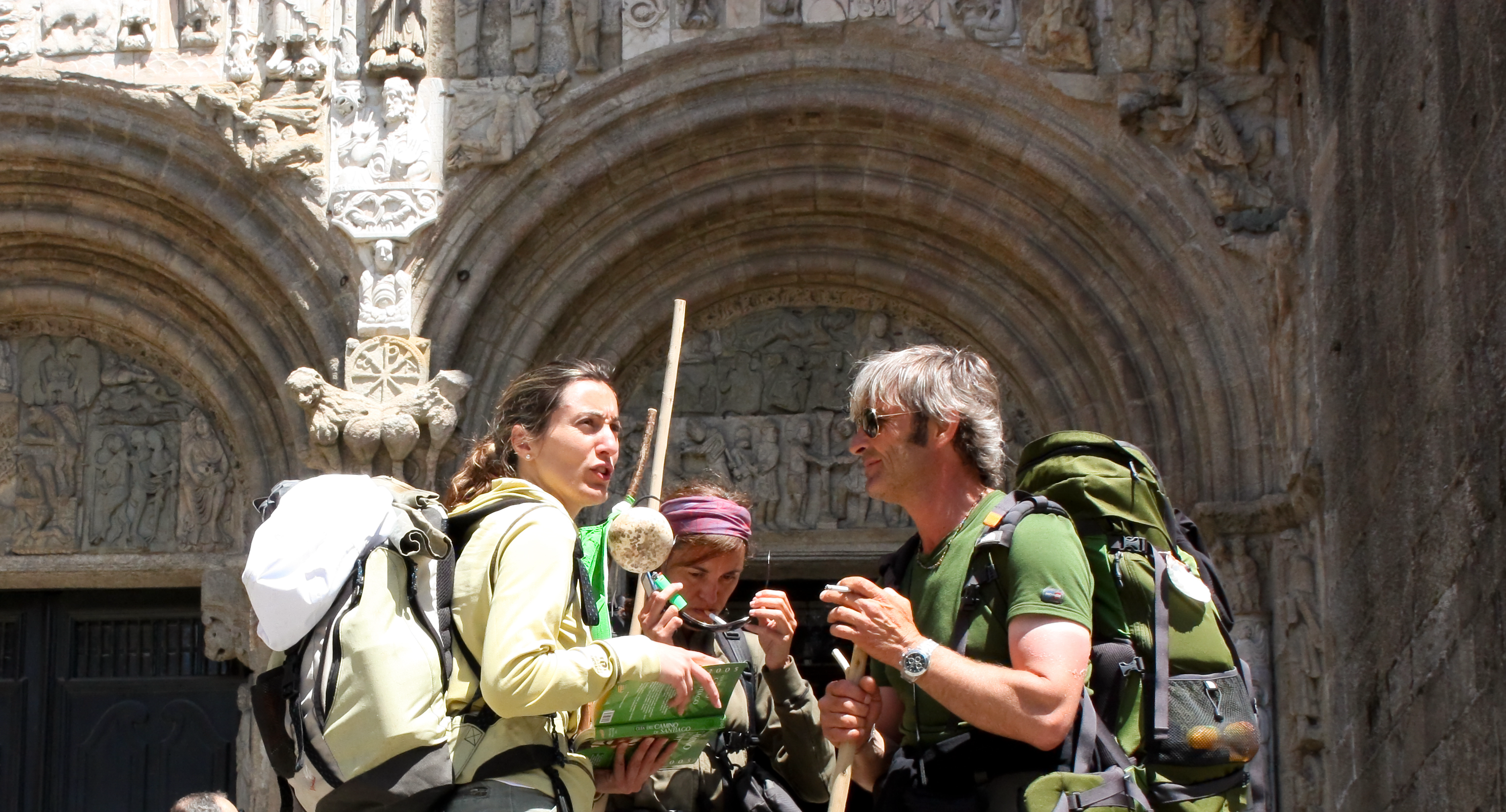To find a friend is to find a treasure. Unfortunately, traveling together often ends friendships. On a pilgrimage, the demands of the journey certainly take their toll, and special challenges arise. How do you protect your friendships during these intense, demanding journeys?
Social psychology identifies kindness as the magic ingredient able to transform potential conflict into opportunities for growth.
The transformative power of kindness
Kindness is a moral quality and a powerful tool for social cohesion. Studies in positive psychology show that acts of kindness activate the same reward circuits in the brain that are associated with pleasure and well-being. When we are constantly interacting with others, these mechanisms become even more important.
Politeness: a domino effect
Politeness is contagious. A single act of kindness, or just a simple display of good manners, can trigger a chain of positive behaviors. During a group trip, this effect is amplified, creating an atmosphere that fosters mutual understanding and tolerance. Do not be afraid to be kind to everyone –even and especially to those who are naturally more hostile.
Strategies for a harmonious coexistence while on the road
- Active listening
The art of active listening is the first step towards effective communication. It obviously implies hearing what others have to say, but it also demands showing genuine interest through body language and by asking appropriate questions. This approach is especially important when interacting with older people, who often bring a wealth of valuable experience to the table.
- Respect generational differences.
Every generation has its own rhythms and priorities. Younger people may prefer a fast pace and constant use of technology, while older people may need more frequent breaks and prefer direct conversation. Finding a balance that respects everyone’s needs is key.
- Managing space.
In close quarters, respect for personal space becomes critical. This means being aware of the physical and psychological distances people need to feel comfortable, especially in different cultural contexts.
The four keys to group happiness
- Active Empathy
Empathy is a matter of emotional understanding that involves a conscious effort to walk in someone else’s shoes. On a group trip, this means considering the difficulties others may face, from language barriers to physical limitations.
- Mental Flexibility
The ability to adapt to the unforeseen and adjust one’s expectations is crucial. A flexible attitude allows one to turn potential sources of stress into opportunities for personal growth.
- Positive Communication
Words carry tremendous weight in defining the group atmosphere. Using inclusive and constructive language and avoiding unnecessary criticism helps create a supportive environment.
- Gratitude
The practice of gratitude, which has been scientifically linked to higher levels of happiness, can radically transform the group experience. Appreciating small gestures creates a virtuous cycle of positivity.
Managing socio-cultural differences.
Differences in social and cultural backgrounds can create invisible barriers within the group. Here’s how to overcome them:
- Avoid assumptions and stereotypes
- Show genuine curiosity about other people’s perspectives
- Look for similarities and acknowledge differences
- Use humor appropriately and respectfully
Respecting schedules
Time management is often a source of tension in groups. A friendly approach means:
- Being punctual out of respect for others
- Being patient with those who have different rhythms
- Offering help to those in need without being intrusive
- Knowing how to alternate moments of sociality with moments of privacy.
Kindness is obviously a desirable social behavior, and a practical tool for building positive and memorable group experiences. While traveling, we leave our comfort zones, so being kind becomes even more important.
Research shows that people who consciously practice kindness contribute to the well-being of the group, and experience higher levels of personal satisfaction. It is an investment that pays off both individually and collectively.





